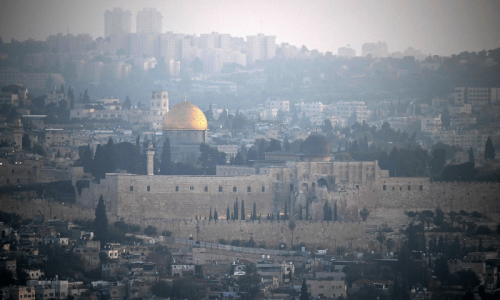J&K: Most habeas corpus cases dragged on as court slammed govt on due process
JUST TEN months ago, the Srinagar wing of the Jammu & Kashmir High Court was confronted with an unprecedented situation — a staggering 250-plus habeas corpus petitions challenging detentions under the draconian Public Safety Act filed in the first seven weeks post abrogation of the special status of the erstwhile state on August 5, 2019.
While the High Court disposed of cases in about 160 petitions filed between August and December 2019, at least 270 habeas corpus petitions remain pending, according to data available on the e-courts platform. But records of cases dealt conclusively by the High Court show that 61 per cent of the cases dragged on over 3-4 hearings, only to be eventually either “dismissed” or “settled” after the court was informed by the government that the petitions had turned infructuous because the detention order under PSA had already been revoked.
The writ of habeas corpus is considered one of the most basic protections a citizen is guaranteed under the Constitution against unchecked state power – of taking people into custody without any charges; and the High Courts are specially empowered to issue orders related to this writ, act swiftly, and order the government to produce the detainee before the court and ensure due process.
Data analysed by The Indian Express reveals how protracted was the process of disposing habeas corpus petitions. Of the 160 filed during August-December 2019, 42 per cent were disposed of in July 2020, almost a year since the abrogation of J&K’s special status; 65 per cent were disposed of during March-July 2020. Just 15 per cent of these 160 cases were disposed of in 2019.
“The High Court judges give undue latitude to the government counsel; there are cases where they have been given a month, even two months, to file objections. It is something unheard of,” GN Shaheen, a senior advocate of J&K High Court, who has himself filed 35 Habeas Croups petitions told The Indian Express.
In two cases, the High Court did not quash the detention order: one related to the plea filed by Awami National Conference (ANC) leader Muzaffar Ahmad Shah, where it directed him to “prove (his) arrest by evidence” before a “proper forum” and in “appropriate proceeding”; the other was a petition filed by the J&K High Court Bar Association president Mian Qayoom, where it dismissed it observing “the court is not a proper forum to scrutinise the merits of administrative decision to detain a person” and that the matter “lies within the competence of the Advisory Board.”
However, in the 17 cases, where the court did quash the detention orders, it made significant observations, putting under the scanner, the procedure followed by the government while invoking the draconian PSA. From noting that the detention order shows “total absence of application of mind” to procedural requirements not being followed in letter and spirit, the court quashed orders for producing incomplete documents to detained persons, including “incriminating material” relied upon by the executive.
In the run up to August 5 and in the days following it, several thousand people were detained from across the Kashmir valley. Of these, several hundred were detained under the PSA, including for the first-time mainstream political leaders like former Chief Ministers, Farooq Abdullah, his son Omar Abdullah and Mehbooba Mufti.
In March this year, responding to a question in the Rajya Sabha, Minister of State (MoS) for Home Affairs, G Kishan Reddy put the figure of preventive detentions over 7,000. “The Government of Jammu and Kashmir has reported that in order to prevent commission of offences involving breach of peace and tranquillity, activities prejudicial to the security of the State and maintenance of public order, cumulatively 7,357 persons including stone-pelters, miscreants, over ground workers (OGWs), separatists, etc. were taken into preventive custody since August, 2019,” Reddy said, on March 11 this year, in reply to a question by Sardar Sukhdev Singh Dhindsa. “Out of these, 451 such persons are presently under preventive detention, which includes 396 persons under Jammu and Kashmir Public Safety Act (PSA). Detentions have been made u/s 107 CrPC, as also under J&K Public Safety Act, 1978”.
When contacted, Director General of Police Dilbagh Singh, said the PSA numbers were exaggerated. “The number of arrests (post August 5, 2019) never went beyond 1,000. It actually ranged between 800 and 900. People would be picked up in the morning, released in the evening,” he told The Indian Express.
“Those who were in jails outside (J&K) were around 250. Right now, those in custody will not be more than 125. There is only one (mainstream) political person booked under the PSA. Those of separatist nature booked under the PSA in J&K were approximately 37 others, now only one left. Seven more have been booked recently,” Singh said.
To avoid criticism from human rights organisations, the government has now started booking people under the Unlawful Activities Prevention Act (UAPA), a senior police officer, who did not wish to be named, told The Indian Express. “The cases under UAPA have seen a sudden surge over the last year,” says advocate Shaheen. “Every day, there are 30-40 remands (under UAPA) in the courts. This is an easy way for them to deny justice,” he said.





